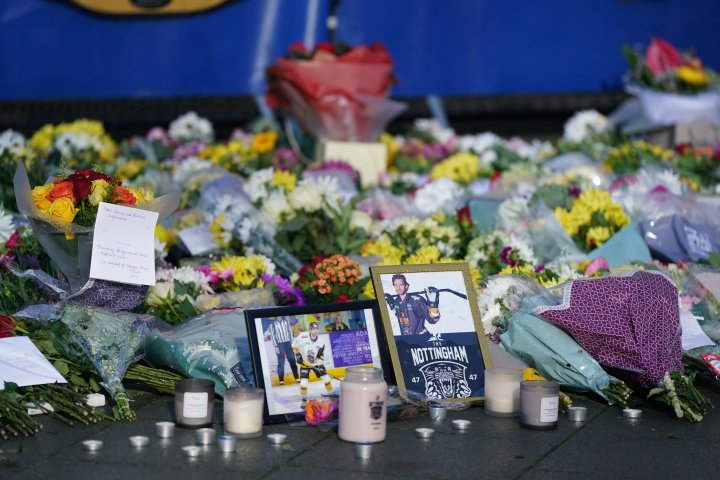
In a move aimed at enhancing player safety, British hockey groups have announced that they will now require the use of neck guards for all players. This decision comes in the wake of the tragic death of Adam Johnson, a young hockey player who suffered a fatal injury during a game.
The incident occurred during a local league game in which Johnson was hit by a stray puck in the neck area. Despite immediate medical attention, Johnson sadly passed away due to the severity of his injury. This devastating event has prompted a reevaluation of safety measures within the sport, leading to the implementation of mandatory neck guards.
Neck guards are protective equipment designed to shield players from potential injuries to the neck and throat area. They are typically made of high-density foam or other impact-absorbing materials, providing an additional layer of protection against flying pucks, sticks, or accidental collisions. While helmets have long been mandatory in hockey, neck guards have not received the same level of attention until now.
The decision to make neck guards compulsory reflects a growing recognition of the potential dangers associated with the sport. Hockey is known for its fast-paced nature and physicality, making it essential to prioritize player safety. By requiring neck guards, British hockey groups aim to minimize the risk of severe injuries and prevent future tragedies like the one that claimed Johnson’s life.
The implementation of this new rule will undoubtedly have a significant impact on players and teams across the country. Players will need to adjust to wearing neck guards during games and practices, ensuring they are properly fitted and comfortable. Coaches and team officials will also need to enforce the rule and educate players on the importance of this added protection.
While some players may initially find neck guards cumbersome or restrictive, it is crucial to emphasize that their use can potentially save lives. The tragic loss of Adam Johnson serves as a stark reminder of the inherent risks involved in hockey. By taking proactive measures to enhance player safety, British hockey groups are demonstrating their commitment to preventing similar incidents in the future.
It is worth noting that this decision aligns with the practices of other hockey leagues around the world. In North America, for example, the use of neck guards has been mandatory for many years. By adopting this standard, British hockey is catching up with international safety guidelines and ensuring that players are adequately protected.
In conclusion, the introduction of mandatory neck guards in British hockey groups is a significant step towards enhancing player safety. Following the tragic death of Adam Johnson, this decision reflects a collective commitment to preventing similar incidents and prioritizing the well-being of players. While it may take time for players to adjust to this new requirement, the potential benefits in terms of injury prevention far outweigh any initial discomfort. Ultimately, this measure will contribute to a safer and more secure environment for all participants in the sport.

